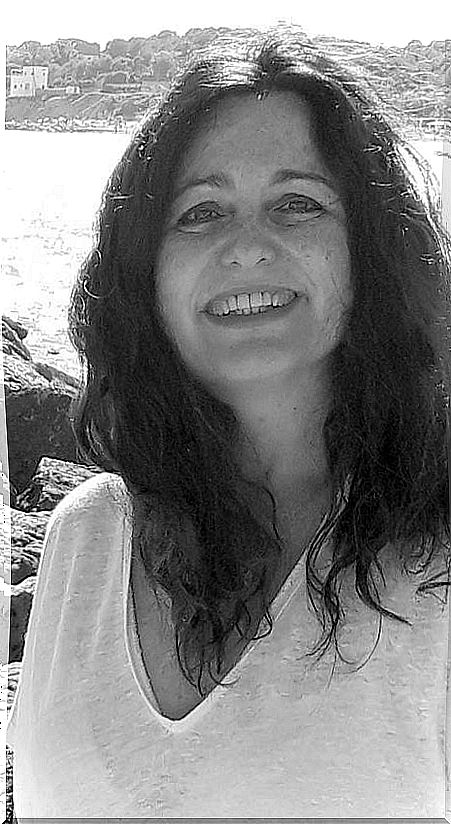“Gifted Boys And Girls Often Feel Like They Don’t Fit Into The World”
She is the author of “Superminds”, a book that gives visibility to gifted boys and girls. A challenge for the family and for the school.

In the movie An Exceptional Gift (2017), a gifted girl is raised by her uncle, also with high abilities, after the girl’s mother (another genius) left her in charge of her brother by committing suicide.
The uncle wants his niece to receive an education in the public school surrounded by the boys and girls of her neighborhood, while the grandmother is convinced that she must develop her full potential in a special school.
Inclusive or special education? This is often the dilemma faced by parents of gifted children.
Esther Secanilla, doctor and professor in Psychology at the Autonomous University of Barcelona, specialized in giving advice to parents and teachers, explains how we can accompany these little gifted children. He accompanies many cases and knows their suffering closely.
“That is why the idea of writing Superminds (Gedisa) was above all to make these boys and girls visible so that we all become aware that they exist, that they are part of our society and we must integrate them and give them a place in the same way that we strive to include those who are less intelligent ”.
Interview with Esther Secanilla
– And how to accompany them well?
– The most important thing is to take into account the context that surrounds them because what can be wonderful in one case, in another context is not the same. In general, it could be said that the more the situation is normalized, the better. These children should not be uprooted from their usual environment or the place where they were born, but for this to be viable the environment must also adjust to them.
The school must be inclusive and adapt both to the needs of children with learning difficulties and to these children who process information in a different way and also remember and express it in a different way. But this in many occasions is not happening. We need to transform the school so that it is suitable for everyone and provides specialized and personalized attention.
–What are the most common mistakes in this accompaniment?
–When these children do not receive the stimuli and challenges they need, they get bored and end up failing in school, especially in adolescence. This is the most common. The school should provide them with the possibility of deepening what they are learning, if possible in the same classroom as their peers of the same age. Course acceleration is an option, but it depends on the environment and whether or not they get along with their peers. It is also often the case that gifted boys and girls are abused by their peers.
– One of the myths surrounds them that they do not always know how to relate well with others?
– Saying always or never is what creates the myths. The truth is that not all children with high abilities suffer abuse from their peers, nor do they all relate well. It is important when evaluating the case and before taking any action to see if there is a dyssynchrony, that is, if the boy or girl presents a mismatch between their intellectual capacities and their emotional capacities.
– Is it always necessary to make a diagnosis? Couldn’t the burden of labeling the child as “gifted” be too much for him or her?
–A diagnosis is usually necessary because the worst problems arise when we neglect them because we do not know that we are dealing with a child with high capacities. Highly capable children who develop above average in all areas, more or less uniformly, tend to go unnoticed and suffer few adjustment problems. They are the ones who adapt.
It may also happen that their context has been able to accompany them well in a natural way. But without a previous diagnosis, it is more difficult to advise an adequate approach in a child who has high capacities in a single area (a talent). On the other hand, diagnosing should not serve to label and that’s it, but to guide the actions of parents and the school. It must be a binding diagnosis for their school development. If our schools were respectful of the particularities of each child, it might not be necessary, but it is not the reality.
“We should transform the school into a more flexible place with teachers who look at each child to find out what they need.”
– How to make a good diagnosis?
–The diagnosis must be derived from an interdisciplinary and common work on the part of all the professionals and relatives who are in contact with the child. It is crucial that everyone goes to one, but there is still often a significant dissociation between parents and school and a lack of fluency in communication between them. It is not enough to do a test or to limit yourself to observation.
The steps to follow are: make an evaluation by the school (teachers, school psychopedagogical team, etc.), evaluate the school work, the relationship it has with its classmates, do interviews with parents and apply common sense . Once we suspect that we are facing a possible case of high capacities, we must go to a specialized center in diagnosis of high capacities to carry it out. Based on this diagnosis, the guidelines to be followed can be determined, but a follow-up must be done, as the person changes and also their needs.
– Are there many gifted people hidden after school failure?
–Yes because many misdiagnoses are made by confusing children with high capacities with children who suffer from ADHD, for example. ADDD is diagnosed too lightly and sometimes it is medicated without it always being necessary. It is about trying to understand in each case what is really happening. Only the linguistic structuring of the boy or girl can already give you great information, in addition to their emotional state and closest environment.
–Can the role of parents compensate for the difficulties that a child with high capacities may face?
-The role of parents is decisive because these children feel that they do not quite fit into the world and that feeling accompanies them in many moments of their lives. What I repeat the most to parents is that they look at their child, that they look at him cleanly without prejudice and without thinking about what they would like him to be and is not, but accepting what he is and recognizing it.
“It is important to listen to our children and create spaces for communication, but also for silence.”
It seems that we are close to them, but in reality we are very far from those around us because we do not know how to stop to listen, to simply be and share. In some schools mindfulness has been introduced with very good results. I have taught relaxation and meditation techniques to high school teachers who are very reluctant to apply them in their classes who, after doing so, have come to explain how well it has worked for them. Stopping is very important.
–Are the teachers prepared to attend to children with high capacities?
– The speech of the complaint is the most frequent among them. Other times they ask you for a script with all the guidelines claiming a magic recipe that solves everything. In the initial training they receive, very little time is devoted to seeing how to care for gifted children. In Zaragoza and La Rioja, very interesting initiatives are being carried out to detect these children early and provide continuous training to teachers to assist them with appropriate pedagogical protocols and resources.
Boys and girls have a hundred ways of thinking and instead in school we are left with only one, the cognitive way. Gardner, the first author who spoke of multiple intelligences, has received much criticism, and although he himself recognized that it is not that we have multiple intelligences but rather more easily in one area than in another, this has helped us to take more advantage of these differences, especially in companies. In fact, more and more curricula are being created based on competencies.
– Could you tell a case of a child with high capacities that you have attended?
– I had the case of a child victim of bullying at school for a long time without it intervening. He came home devastated and from P3 it was difficult for him to go to school. In spite of everything, he was passing courses. In the first one he was lucky because he found a teacher who accompanied him well and helped him, but in the third year the mistreatment of his classmates worsened. The school refused to take care of the special needs of this child, as well as to intervene in the bullying; so soon the bad grades began as the school blamed the parents. After the diagnosis that affirmed the high capacities of the child, the school continued in its line reluctant to give him special attention.
Finally, the parents changed the child from the school, something they wanted to avoid, and with the change, without applying an acceleration of the course, with the diagnosis finally the school cared for their child adequately. Now he is in the third year of ESO and is well next to his classmates while the institute does everything possible to give him the support he needs and makes a curricular adaptation. Is it a success story? We will see the evolution.









